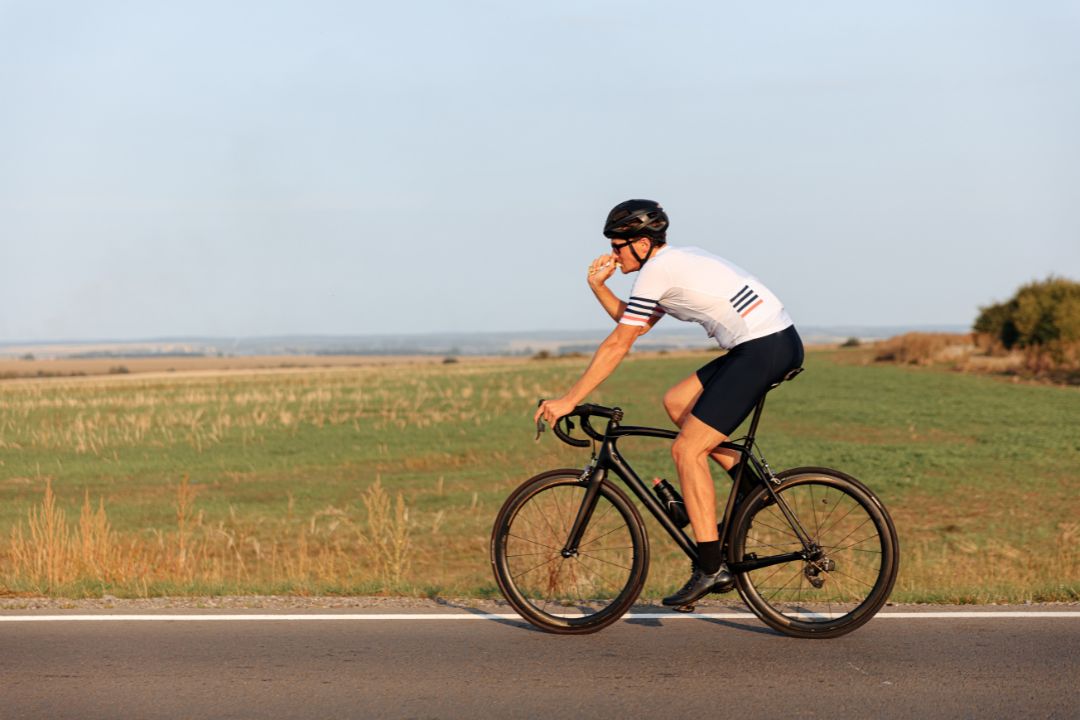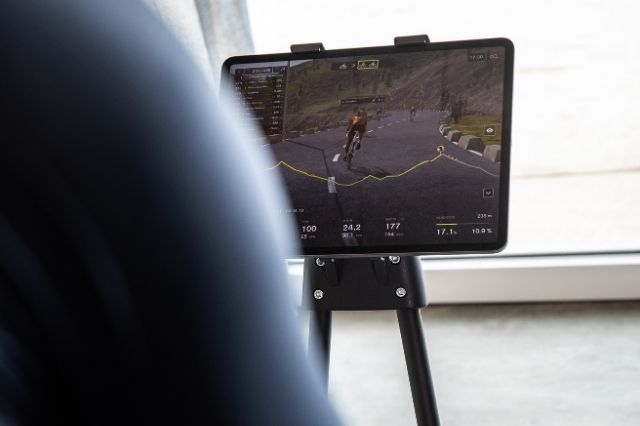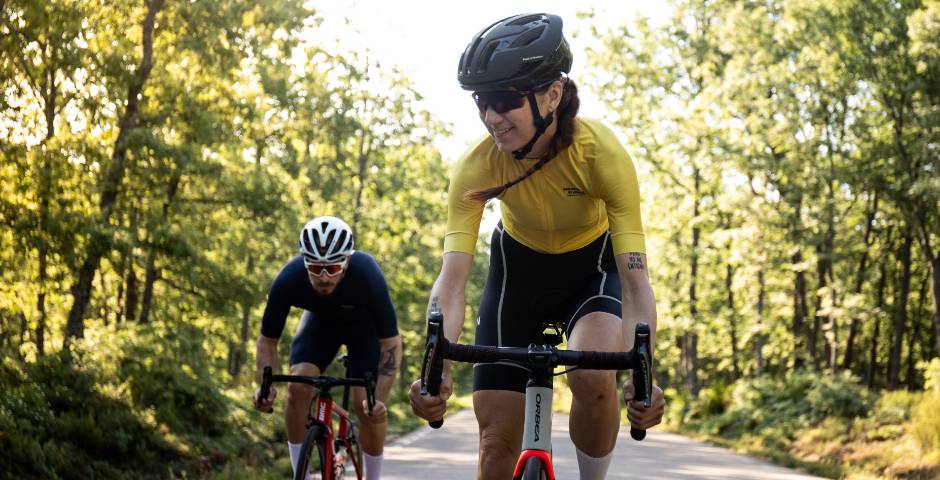Recovery is an essential component in any cyclist’s routine, especially after a long ride. Often, cycling enthusiasts focus on accumulating kilometres and improving their times, relegating the recovery process to the background. However, it is precisely this process that allows the body to adapt and overcome the physical challenges it has faced. Neglecting recovery can lead to decreased performance and even injuries.
After an extensive day of pedalling, the body has undergone significant physical stress. Muscle fibres need to repair, glycogen stores must be replenished, and the nervous system requires a period to return to its basal state. Therefore, it is vital to understand that recovery begins the moment we dismount the bike.
Hydration as a fundamental pillar after cycling
Sweat and sustained effort lead to a considerable loss of fluids and electrolytes, which can result in dehydration if not replaced. Hydration is not just about drinking water; it is a more complex process that involves the replenishment of minerals like sodium, potassium, and magnesium, which are essential for muscle function and nerve transmission.
Water is crucial, but after a long ride, sports drinks containing electrolytes can be more effective in rebalancing body fluids. Furthermore, there are studies suggesting that fluid intake with a small amount of carbohydrates and proteins promotes a faster recovery.
One should not wait to feel thirsty to start rehydrating; thirst is a late indicator of dehydration. Therefore, the advice is to drink proactively, even using reminders if necessary, to ensure hydration is an integral part of the post-ride routine.

Strategic nutrition to optimise muscle recovery
After completing a long ride, the body needs to replenish energy reserves. Carbohydrates are the main fuel the body uses during prolonged and high-intensity exercise. It is crucial to replenish these carbohydrates by consuming carb-rich foods immediately after exercise to optimise muscle glycogen recovery.
The window of opportunity for glycogen recovery is most effective in the first two hours post-exercise. This is where a meal or snack rich in carbohydrates and proteins can make a difference. A ratio of 3 to 1 or 4 to 1 of carbohydrates to proteins is often recommended to promote optimal recovery. Protein is critical as it aids in the repair of damaged muscle fibres and the building of new tissue.
Foods like yogurt with fruit, a protein shake with banana, or even a turkey sandwich are excellent options to start the recovery process. Moreover, the power of a complete and balanced meal including vegetables, whole grains, lean proteins, and healthy fats in the hours following exercise should not be underestimated.
Rest and restorative sleep techniques for cyclists
Rest and sleep are probably the most underestimated components of recovery. During sleep, the body performs crucial repair and strengthening processes. Quality sleep is essential for the proper functioning of the immune system and for hormonal regulation, which includes hormones like cortisol and testosterone, playing a significant role in recovery and performance.
Not only the amount of sleep is important but also its quality. Sleeping in a dark and quiet environment, maintaining a regular sleep routine, and avoiding electronic screens and heavy meals before bedtime are recommended practices to improve sleep quality.
Aside from nocturnal sleep, napping after a long ride can be a powerful tool. Naps of 20-30 minutes can help to improve mental alertness and muscle recovery, without interfering with the pattern of nocturnal sleep.
In addition to passive rest, there are active recovery techniques. The use of dynamic compression, massage therapy, and yoga are all valid strategies that help to improve circulation and reduce recovery time.
Even on rest days, a cycling simulator like BKOOL can be of great help in maintaining mobility without adding additional stress to the body. These simulators allow for gentle rides that facilitate active recovery after long ride, improve circulation, and help to eliminate waste products from muscle metabolism, such as lactic acid.
BKOOL is the most complete cycling simulator on the market. Try it for FREE for 30 days!
 Go to BKOOL
Go to BKOOL





